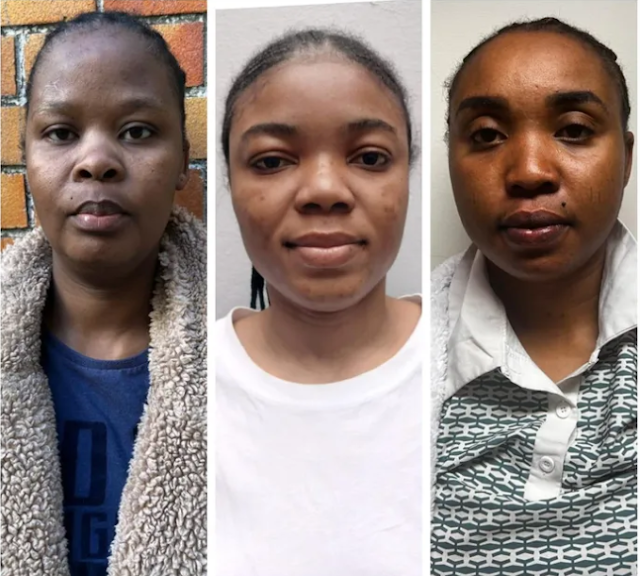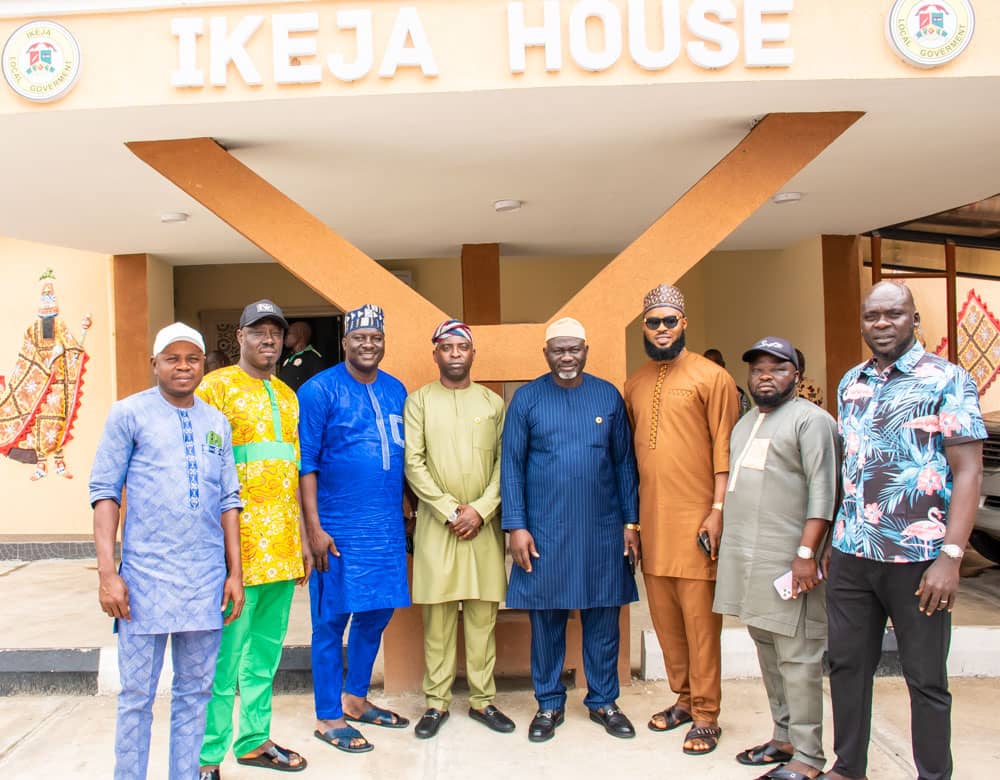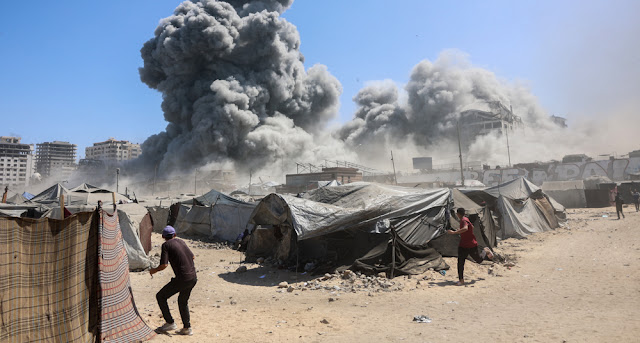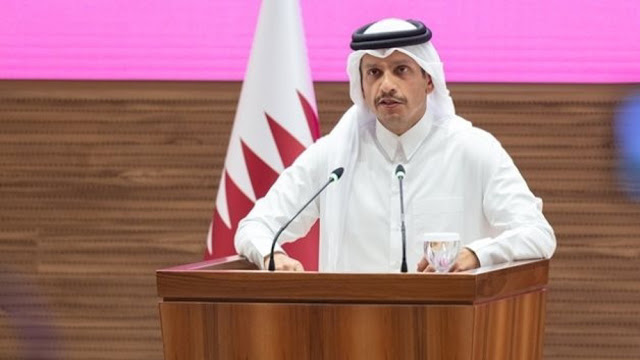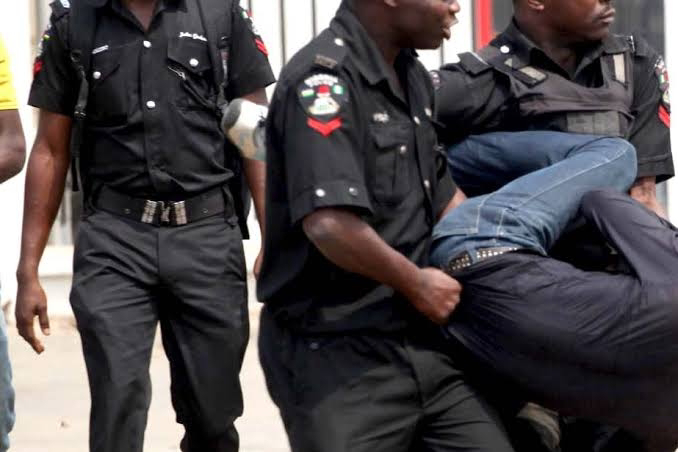In a significant ruling in South Africa, two Nigerian women, Linda Osunkwo and Esther Freeman, along with a third individual, Sphamandla Thulani Vilakazi, have been sentenced for their roles in operating an illegal brothel and engaging in human trafficking. The trio was convicted by the Kempton Park Magistrates Court in Gauteng Province, marking a notable step in the fight against human trafficking and exploitation in the region. The sentencing, announced on September 10, 2025, not only imposes prison terms but also mandates financial compensation for the victims, highlighting South Africa’s commitment to addressing the severe impacts of such crimes.
The case centers on the exploitation of vulnerable women who were lured to South Africa under false pretenses. Linda Osunkwo and Esther Freeman were found guilty of orchestrating a scheme that involved recruiting women, primarily from Nigeria, with promises of legitimate employment opportunities. Instead, upon arrival, the victims were coerced into sex work at a brothel in Kempton Park. Sphamandla Thulani Vilakazi, a South African national, was also implicated for his role in managing the operations of the brothel and facilitating the exploitation. The court determined that the trio’s actions constituted human trafficking, a grave violation of human rights, as they profited from the suffering of their victims.
According to the details of the case, the victims were subjected to severe manipulation and control. Many were promised jobs in sectors such as hospitality or retail, only to find themselves trapped in a cycle of exploitation. The women were often stripped of their travel documents, subjected to physical and psychological abuse, and forced to work under inhumane conditions. The court highlighted the deliberate deception used to exploit the victims’ vulnerabilities, including their economic desperation and lack of familiarity with South Africa.
Linda Osunkwo was sentenced to seven years in prison, while Esther Freeman received a five-year sentence. Sphamandla Thulani Vilakazi was handed a six-year term. In addition to their imprisonment, the court ordered the trio to collectively pay R150,000 (approximately $8,400 USD) in compensation to the victims. This financial penalty aims to provide some measure of restitution to those who endured significant trauma and loss as a result of the trafficking operation. The ruling underscores the judiciary’s recognition of the need to support survivors and hold perpetrators accountable beyond mere incarceration.
The case has drawn attention to the broader issue of human trafficking in South Africa, a country that serves as both a destination and transit point for trafficking networks. Authorities have noted that foreign nationals, particularly from other African countries, are often targeted due to their socio-economic challenges and limited access to legal protections. The South African government has been working to strengthen its anti-trafficking measures, including through stricter enforcement of the Prevention and Combating of Trafficking in Persons Act. This legislation, enacted in 2013, provides a framework for prosecuting traffickers and protecting victims, though challenges remain in its implementation.
The conviction of Osunkwo, Freeman, and Vilakazi is seen as a victory for law enforcement and advocacy groups that have been pushing for greater action against human trafficking. The National Prosecuting Authority (NPA) of South Africa emphasized that the ruling sends a strong message to those involved in such illicit activities. It also highlights the importance of victim-centered approaches in the justice system, as the compensation order aims to address the financial and emotional toll on survivors.
However, the case also raises questions about the systemic factors that allow trafficking networks to thrive. Poverty, unemployment, and porous borders contribute to the vulnerability of individuals who fall prey to false promises. Activists argue that while convictions are crucial, more needs to be done to address root causes, such as economic inequality and lack of education, to prevent future cases. Additionally, ensuring that victims receive adequate support, including counseling and reintegration programs, remains a critical challenge.
This sentencing comes amid growing international scrutiny of human trafficking, with organizations like the United Nations calling for coordinated global efforts to dismantle trafficking networks. South Africa’s role as a regional hub makes cases like this particularly significant, as they demonstrate the country’s resolve to combat modern slavery. The Kempton Park ruling may serve as a precedent for future cases, encouraging authorities to pursue both punitive and restorative justice for victims.
In conclusion, the conviction of Linda Osunkwo, Esther Freeman, and Sphamandla Thulani Vilakazi marks a pivotal moment in South Africa’s ongoing battle against human trafficking. The prison sentences and compensation order reflect a dual focus on punishment and victim support, signaling a broader commitment to justice. As the country continues to grapple with the complexities of trafficking, this case underscores the need for sustained efforts to protect the vulnerable and dismantle exploitative networks.


